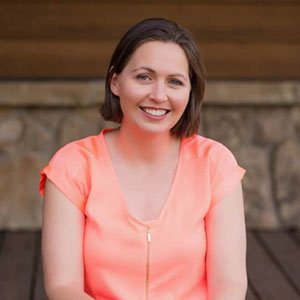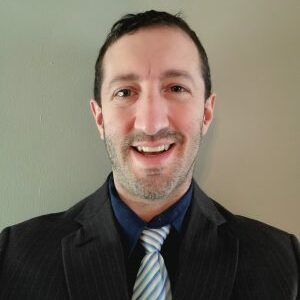
Know Your Blogger Series
The Frugal Engineers

I started my blog in 2019 to make friends and to help people. I noticed a lot of my colleagues and friends were experiencing the same dissatisfaction with their professional careers after they started having kids, but they didn’t know what other options were available.
I’m an engineer, and most engineers are great with math, but not necessarily great with money. I write each post with my friends in mind, thinking “what could I write today to help them solve a particular problem they’re facing?”.
Check out our Q&A with The Frugal Engineers here.
I’m an engineer, and most engineers are great with math, but not necessarily great with money. I write each post with my friends in mind, thinking “what could I write today to help them solve a particular problem they’re facing?”.
Check out our Q&A with The Frugal Engineers here.
Come read about how you can achieve financial independence as an engineer from the blogger behind The Frugal Engineers.
Each week at Personal Finance Blogs, we publish interviews from amazing bloggers from the personal finance space. This week, we are featuring the blog, The Frugal Engineers.
During these weekly features, we are hoping to provide a way for you to interact and learn more about different blogs in the personal finance space.
Below, you can read more about the story behind The Frugal Engineers, learn about the author, and learn personal finance tips from The Frugal Engineers to help you improve your financial situation.
A big thanks for The Frugal Engineers for this interview! Now, we will turn it over to the author for this interview.
Editor Note: As of July 2020, The Frugal Engineers has discontinued their blog. We have removed any links to their blog.
During these weekly features, we are hoping to provide a way for you to interact and learn more about different blogs in the personal finance space.
Below, you can read more about the story behind The Frugal Engineers, learn about the author, and learn personal finance tips from The Frugal Engineers to help you improve your financial situation.
A big thanks for The Frugal Engineers for this interview! Now, we will turn it over to the author for this interview.
Editor Note: As of July 2020, The Frugal Engineers has discontinued their blog. We have removed any links to their blog.
Tell us about The Frugal Engineers
I started my blog in 2019 to make friends and to help people. I noticed a lot of my colleagues and friends were experiencing the same dissatisfaction with their professional careers after they started having kids, but they didn’t know what other options were available.
I’m an engineer, and most engineers are great with math, but not necessarily great with money. When we spend all our time and mental energy focusing on engineering (or other professions), there’s little brain bandwidth available at the end of the day to come home and check how your net worth’s grown.
I came up with the name The Frugal Engineers because it captures our personalities. My husband and I are both engineers, and we’re both known as the frugal ones in our friends and families. I write each post with my friends in mind, thinking “what could I write today to help them solve a particular problem they’re facing?”.
What makes you and your blog unique?
I’ve been writing for a year now, and some of my views on early retirement have changed after living through it. I like to use the term WATER: Working After Trying Early Retirement. Reaching financial independence was the catalyst for me to say “no” to the types of work I didn’t love, and to make room to say “yes” to the types of work I’ve always wanted to do.
I also write a fair amount on parenting topics, including how to afford college while also retiring early, the importance of raising kids to do chores, and changes I’ve noticed through my volunteering with young adults.
What does “being good with your personal finances” mean to you?
It means being conscious of where your money is going. Knowing how much you’re paying for services, and taking the time to look up how much something costs before you decide to purchase it. It also means knowing what you’re actually earning from your job, in terms of your “real hourly wage”.
What are some habits you practice to keep your personal finances in order?
Every week, we have a family meeting where we reconcile our transactions in Personal Capital. Once a month, we set our budget for the next month, and we do a mid-month check-in to plan social activities & travel with what’s remaining.
Another habit I have is filling up our family’s social calendar with free activities FIRST. Events at the library, free community events offered by the local university, or free adventures like hiking make it onto the calendar before events that cost money.
What are your three articles people should read to get to know you and your message better on your site?
Start Here explains how we retired from full time work at age 35.
My first blog post, Financial Independence: REWIRED, not Retired, explains our philosophy on being REWIRED, Not Retired. Although we’re financially independent, we still enjoy working on our own terms.
FIRE as a Family: Our Plan to Retire at 35 explains how I taught myself how to invest so that we could retire from full time work at 35 (even with a kid!).
For someone looking to improve their financial situation, what’s your best advice?
You can’t manage what you don’t measure, so the first step in getting finances in order is to track your spending, debts, and assets. If you’re married, look at all the accounts combined (with both of you present!). When you have a list of all your financial obligations, you can start to set some realistic goals.
It’s also important to make a commitment to understanding your finances the same way you understand other forms of self maintenance (like diet and exercise). No one else is going to value your money as much as you do, so it pays to educate yourself on how money works. For about a year after discovering FIRE and committing to the goal, I spent 30-60 minutes/day online reading everything I could about investing, index funds, Roth IRA conversion ladders, tax minimization, etc. That was time well spent, while my peers mostly watched Netflix.
In your opinion, what’s better? Renting a place or buying a house to live?
I’ve made and lost fortunes from owning homes, and I still continue to own. However, I completely understand why folks choose to rent. If you’re in an uncertain phase of life, like if you’re single and willing to move to be closer to your future spouse, then owning a home doesn’t make sense.
I don’t know if I’ll buy another house after this one (our third) because we do want to explore the world more after our daughter grows up and I like the flexibility of renting. We also plan on moving to wherever she lives with her own kids, which may be our current hometown or somewhere far away. Being mobile certainly has its advantages.
In your opinion, what should you do first? Pay down debt, or invest?
Pay down debt, because the mental weight of debt can not be underestimated. I didn’t sleep through the night for years when I carried credit card debt, student loans, and a car payment. I like to think of it like this: debt is what you owe the past, investing is what you owe the future. I can’t imagine planning for the future without reconciling the choices of my past first.
Also, I think it’s dangerous how comfortable our culture has become with carrying any form of debt (even a mortgage). Setting up your lifestyle based on minimum monthly payments is tenuous and stressful, especially when your employment situation is in the hands of someone else (your boss).
When I was paying off personal debt during my first job after college, I dropped my 401K contribution down to the minimum amount to get the free employer match. I paid off all my debts in 1.5 years, then maxed out my 401K most years since then. When we had our first mortgage (for 2.5 years), we still maxed out our retirement accounts while paying extra on the mortgage.
What are your favorite personal finance books?
Your Money Or Your Life and The Millionaire Next Door were the first two money books I read in college, and are my go-to recommendations. Many of the books written afterwards say the same thing in a different way.
In your opinion, what’s better? Focusing on increasing your income, or focusing on decreasing your expenses?
Decreasing your expenses, since you don’t always have control over income stability. I graduated during the recession and experienced a 10% pay cut at my first job. At the time, the opportunities to increase my income just weren’t there. However, by living like a college student, my husband and I were able to base our spending off one of our jobs and build wealth even in a down market.
What is your favorite investment class and why? (stocks, private business, bonds, real estate, crypto, precious metals, etc.
I’ve found the best ROI is when I invest in myself, in terms of education and personal development. I spent almost $2,000 on a life coaching package that was truly transformative.
In terms of traditional investments, I’m a big fan of stock index funds.
If you received a $5,000,000 windfall tomorrow, what would you do with the money?
I’d buy my mom a house and set up an annuity to pay for the maintenance costs, insurance, property taxes, and utilities. I’d choose a house big enough to host the rest of our extended family too. With the rest, we’d donate some to causes we care about and take time off from school to try world-schooling as a family.
What’s a non-money related interest you have and what do you love about it?
My main hobby is teaching dance fitness. I started doing this after my daughter was born and the local dance studio was the closest exercise facility to my house that offered childcare. The ladies at the studio welcomed me (and my baby) with open arms and after a year, I began teaching my own classes. I’ve been doing this for years and love it because I never miss a workout! It keeps my brain sharp, provides a social outlet and gives me a break from technical tasks like engineering consulting.
Thank you for reading this interview, and thank you, The Frugal Engineers, for providing us with some great personal finance tips!


